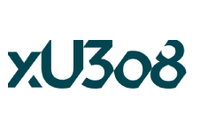Tensions in the region have been amplified since the beginning of the year, when US President Donald Trump gave the green light for a drone attack that killed Iran’s top general, Qassem Soleimani.
Iran has warned that European troops in the Middle East “could be in danger” a week after the country mistakenly shot down a Ukraine-bound passenger jet leaving its air space.
The threat from Hassan Rouhani, the country’s president, came hours after Britain, Germany and France (the E3) triggered a dispute mechanism in an effort to salvage the withering Joint Comprehensive Plan of Action (JCPoA), an agreement also known as “the nuclear deal.”
Tensions in the region have been amplified since the beginning of the year, when US President Donald Trump gave the green light for a drone attack that killed Iran’s top general, Qassem Soleimani.
The joint announcement, which enacts a dispute mechanism outlined in paragraph 36 of the deal, is a last-ditch effort to get Iran to again comply with the enrichment limits and centrifuge regulations put forth in the 2015 multinational agreement.
The pact has been left in a precarious state since Trump pulled the US out of the deal in May 2018.
The now-invoked oversight tool will see a joint commission comprised of representatives from each signatory country review the situation. The commission will have 15 days to resolve the issue.
If a resolution cannot be made, the individual representatives will convene with their respective ministers who can then decide if a further review by a special advisory board is warranted. If after an additional 20 days an agreement can still not be reached, the groundbreaking deal could be nullified.
Last week, the Islamic Republic said it was taking the fifth and final step away from the JCPoA, which relates to the number and types of centrifuges the country may possess and use.
In the statement, the E3 noted, “We do this in good faith with the overarching objective of preserving the JCPoA and in the sincere hope of finding a way forward to resolve the impasse through constructive diplomatic dialogue, while preserving the agreement and remaining within its framework. In doing so, our three countries are not joining a campaign to implement maximum pressure against Iran. Our hope is to bring Iran back into full compliance with its commitments under the JCPoA.”
Iran quickly responded, with Rouhani taking to state TV during a cabinet meeting. “Today the American soldier is in danger, tomorrow the European soldier could be in danger,” he said.
Iran has been critical of the US pulling out of the JCPoA and of the E3 for failing to stand up to the powerhouse nation’s “terrorist adventurism.”
Javad Zarif, Iran’s foreign minister, posted photos from the Raisina conference on Twitter (NASDAQ:TWTR) early Wednesday (January 15), with several captions related to the ongoing conflict.
E3’s response to US attack on JCPOA has been to cut trade/investment in Iran while embargoing our oil.
Told #Raisina2020 it’s sad that biggest economy has allowed itself to be bullied into violating own obligations. JCPOA’s future depends on E3, not Iran.https://t.co/Ixx3lU6jnY
— Javad Zarif (@JZarif) January 15, 2020
Told #Raisina2020 that Iran believes in diplomacy: but not in re-negotiating a UNSC Resolution we agreed on with 6 Governments & EU.
We did not sign an “Obama deal” to go for a “Trump deal” now. Even if we did, who’s to say we won’t need Biden, Sanders or Warren deal next year? pic.twitter.com/Lf1AovSINJ
— Javad Zarif (@JZarif) January 15, 2020
In addition to its conflict with the US, Iran will have to deal with mounting pressures from Israel.
On Tuesday (January 14), Israeli Prime Minister Benjamin Netanyahu called for countries in the west to reinstate sanctions against Iran in response to the nation’s efforts to enrich uranium.
“We know exactly what is happening with the Iranian nuclear program,” Netanyahu said. “Iran thinks it can achieve nuclear weapons. I repeat: Israel will not allow Iran to achieve nuclear weapons.”
This refrain echoes Trump’s words last week.
According to Israeli state media, an intelligence report states that Iran could have enough uranium to produce a nuclear weapon by the end of 2020. However, it does not have a missile capable of carrying a warhead at this time.
According to the report, it would take at least 24 months for Iran to develop such a missile.
Don’t forget to follow us @INN_Resource for real-time news updates!
Securities Disclosure: I, Georgia Williams, hold no direct investment interest in any company mentioned in this article.




